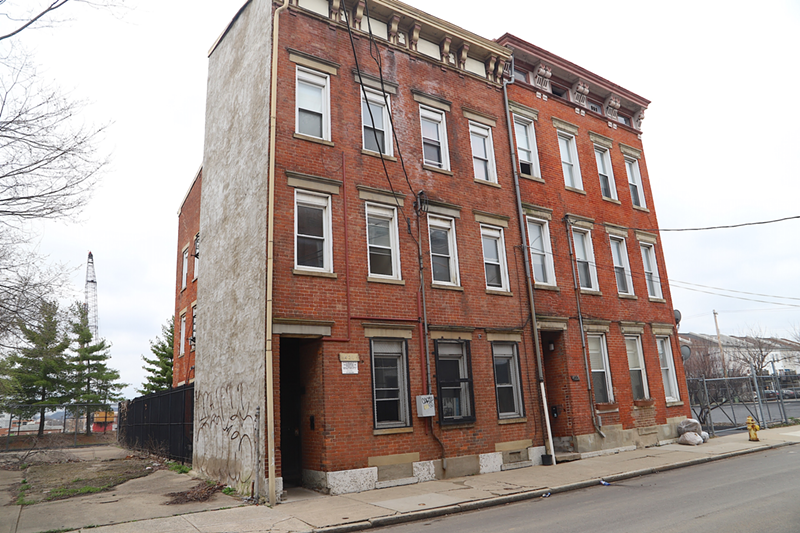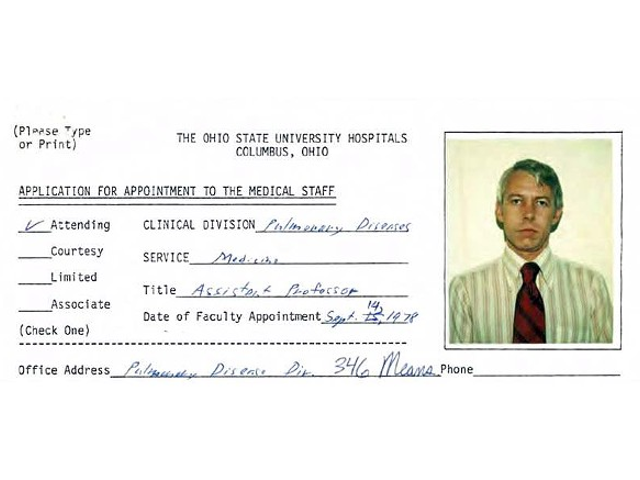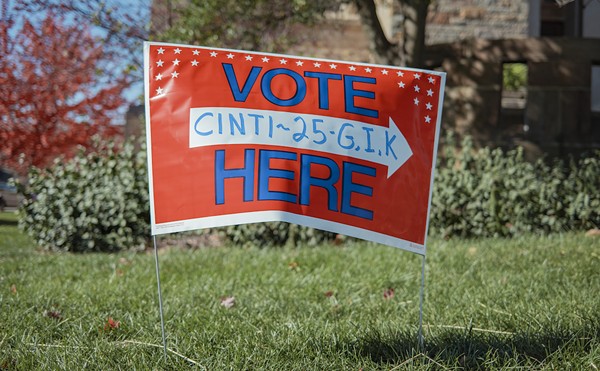FC Cincinnati says it will pay relocation costs and allow residents in two buildings the team purchased to stay rent-free until October if they agree to a deal that will eventually require them to move out.
But residents and their representatives say they're committed to a compromise plan — one that involves moving them from one building owned by the team at 421 Wade St., just yards from its coming $250 million stadium, to another team-owned property at 1559 Central Ave. a block away.
"Tenants really want to stay," said Legal Aid of Greater Cincinnati's John Schrider, who is representing the residents. "We haven't been given any reason why 1559 can't be an option. They've been looking for other housing. But it's difficult to find other housing."
Cincinnati City Council passed a motion backing the resident's preferred compromise last month and also suggested preserving 1559 Central as affordable housing by turning over ownership to West End community development corporation Seven Hills Neighborhood Houses.
The team has said it isn't sure what the properties will be used for yet, but says residents staying at 1559 is a non-starter.
FC Cincinnati bought both properties, which are home to more than a dozen residents, in January. In February, former owner Fred Berger notified residents of those properties that they would need to leave by April 30. Following a brief meeting with residents April 26, the team issued a letter the day of the deadline saying the residents could stay until May 31.
The two parties have not met since. FC Cincinnati says that's because residents have refused further meetings. But Legal Aid of Greater Cincinnati's John Schrider, who is representing residents, says that is not the case.
"In every email that I've sent, we've indicated that there is flexibility and we want to talk," he says.
The team says five units in the two buildings have been vacated. Two residents will move June 1. Four residents remain without replacement housing, the team says, and another has delayed moving.
Some residents say that the replacement housing options they have found so far haven't been satisfactory, either because they are not easily accessible to those with mobility issues, because they are far from the West End or because they are not in good condition.
The team's newest offer, outlined in a letter sent to media and a community coalition made up of elected officials, neighborhood representatives and others formed as part of the team's community benefits agreement with the West End, includes the following:
• Residents will be allowed to stay in both properties until October 31 without paying rent as long as they agree to a deal by May 31. The team says it won't charge rent because it is not set up to accept Section 8 vouchers, which many residents use. The team cautions the residents will need to communicate with the Cincinnati Metropolitan Housing Authority about what will be required to keep those vouchers in the meantime.
• Each resident will get $2,500 upon moving out.
• The team will pay for packing, moving and unpacking services for each resident.
• FC Cincinnati will also pay to relocate 99-year-old bedridden resident Mary Frances Page's hospital bed. Page lives at 421 Wade and has been the focus of much of the coverage around the issue.
FC Cincinnati also underlined past support it has given the neighborhood, including $100,000 for an emergency housing fund, $100,000 for a housing study and another $50,000 for community engagement around housing needs.
The team has pinned reluctance to leave by residents on news coverage and those Berding calls "professional agitators."
"FCC and the property manager have diligently communicated with tenants on the need to relocate and have made offers of support to assist in relocation," the team says in its letter. "Unfortunately, some tenants are being encouraged by media coverage and outside activists to forgo other housing options and remain in the buildings – even though the buildings will be closed-down and will not be used for residential housing. Staying in the buildings is not an option."
But Schrider says residents have already made their stance known and that the team shouldn't be trying to negotiate via press coverage.
"This letter didn't go to me or my clients," Schrider says of FC Cincinnati's latest missive. "And there are numerous mischaracterizations in this communication."
"The allegation by FC Cincinnati that the tenants are being used by other is taken by my clients as an insult," he continued. "It's demeaning, because it says that the tenants don't have a mind of their own and are being manipulated. That is false."
Revelations that the team bought the buildings and is asking residents to leave has caused controversy. During the turbulent process leading up to the team's selection of the West End as the location for its stadium, FC Cincinnati President and General Manager Jeff Berding promised on several occasions that no residents would be displaced due to its construction.
"Let me stress this: We’re not taking anyone’s homes,” Berding said in January 2018. “We’re going to increase home ownership. We’re going to increase the number of people living in a neighborhood. The notion that we’re somehow going to try to buy people’s homes out, move people out of the neighborhood, that’s just false. That’s just made up."
Berding has since clarified that he was referring to property within the stadium's footprint when he pledged residents would not be displaced. Even there, however, three businesses and one resident had to leave when the team purchased the State Theater on Central Ave and West 15th Street.
FC Cincinnati needs key zoning change approvals and sale of city rights-of-way approved by both the Cincinnati Planning Commission and Cincinnati City Council as it continues construction of its stadium. Members on both bodies have indicated they strongly desire that the team works out the situation with residents before further votes on those items.
"You have to remember that FC Cincinnati is getting public subsidies for this stadium," Schrider says, referring to the more than $60 million in city and county money that will go into infrastructure for the project, plus tax abatements and other benefits. "I think that's really important. When the public supports these kinds of developments, we have the right to expect they're done equitably."
"When FC Cincinnati bought the building, they didn't disclose it," Schrider continued. "And they didn't offer the residents anything. As late as April 12, according to their own communication, they only thing they were trying to was try to help Ms. Page."
The Planning Commission May 10 granted sale of two rights-of-ways the team says it needs immediately for parking garages near the stadium, but held off at the team's request from considering the team's final development plan for the stadium. The commission will hold a staff conference on that final plan approval May 29 and will vote on June 14.
City Council's Growth and Zoning Committee will discuss the rights-of-way May 29.
Planning Commission Chair Dan Driehaus said the commission is taking concerns about the residents seriously. Before the commission voted May 10, he questioned the process by which the team had arrived at this point.
"I can't believe that the Lindner family, the Farmer family, my family and Mr. Stallworth’s family are being put in this position," he said. "We did not want this pressure... I wish Mr. Berding wouldn’t put us in this position. Asking for trust is hard."
"We do want time," he continued. "I think all of us care about (1559 Central resident) Ms. Lane and what it will take to move her kids. We don't have to be in this position. Boy — this was not necessary. Why not hold back until the situation with tenants is resolved?"






